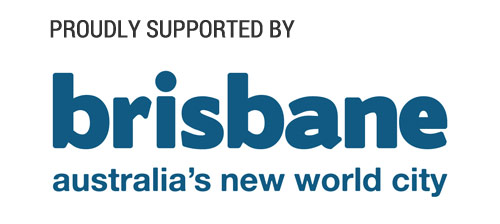PLANNING YOUR ARRIVAL INTO AUSTRALIA
TRAVEL
For international passengers, we suggest that you try to allow yourself at least a day in which to adjust to the time difference and relax after your flight before the Congess commences. Travellers flying westward across the Pacific Ocean are reminded that they will lose a day by crossing the International Date Line. The ‘lost day’ will be returned on the return journey.
VISA INFORMATION
All visitors to Australia must have a valid visa before travel. Travellers to Australia cannot apply for a visa on arrival, with the exception of New Zealand and Norfolk Island passport holders, who will usually be issued a visa on arrival in Australia provided they meet health and character requirements. All visitors should apply for a visa at least two months prior to their intended date of departure, and four months prior for people with character or health concerns.
For all visa information please visit the International Event Coordinator Network (ICEN) page of the Department of Immigration and Border Protection website. This website will assist with information on which visa is applicable, how to apply, customs clearance, quarantine regulations, arrival, departure and more.
INVITATION LETTERS
The 19th World Congress on Dental Traumatology will offer invitation letters to persons who have registered and paid the complete registration fee. The letter will provide proof of registration and proof of payment.
Official Acceptance and Invitation Letters may be obtained by contacting the19th World Congress on Dental Traumatology Conference Organisers Office by email .
Invitation Letters can only be requested once payment of registration has been received.
Please note that when applying for your Visa you should include a copy of your registration confirmation.
QUARANTINE
Australia is free from many plant and animal diseases prevalent in other countries. Very strict quarantine rules apply to the importation of animals and plant products and many cannot be brought into the country without prior application. To have a smooth transition through quarantine and to enjoy your visit in Australia, it is important that you understand Australia’s quarantine regulations. Visit http://agriculture.gov.au/travelling/arriving-in-australia for more information.
CUSTOMS
Please ensure that along with your passport and visa, you also pack your registration confirmation letter within your carry-on luggage. You may be asked to produce this when going through customs at your arrival airport. In addition to this, please be sure to fill out your Incoming Passenger Card with all details and answer each question honestly.
DRIVERS LICENSE
International Driving Licenses are recognised throughout Australia. Car rental companies ask for a valid driving license.
BANKING, CURRENCY AND EXCHANGE RATE
Banking hours are generally 0900 to 1600 and extended on Fridays to 1700. Several international banks have offices in the CBD. Currency exchanges are located at airports, banks and major hotels. Consult a bank for the latest exchange rate. Decimal currency is used in Australia (AUD) and currency units are dollars and cents. Australian notes are: $100, $50, $20, $10, $5. Coins are: $2, $1, 50, 20, 10, and 5 cents. Australian currency fluctuates on the international monetary exchange. Therefore we recommend checking with your local bank for the exchange rate just prior to your arrival in Australia or visit www.x-rates.com for the current exchange rates.
CREDIT CARDS
Most hotels, large restaurants and shops will accept international credit cards, the most widely recognised being American Express, Diners Club, MasterCard and Visa. Automatic teller machines are plentiful and situated throughout the city.
ELECTRICITY
Electrical current is 240/250V, AC 50Hz. The Australian flat three-pin power outlet is different from that in many countries, so you will need an adaptor. If your appliances are 110V, check if there is a 110/240V switch. If not, you will need a voltage converter. Universal outlets for 240V or 110V shavers are usually found in leading hotels.
HEALTH
Vaccinations are not required unless you have come from a yellow fever- infected country zone within six days prior to your arrival. You do not need any other health certificate to enter Australia. Australia has a high standard of hygiene and doctors and dentists are highly trained and hospitals are well equipped. In the event of illness, hotel staff can arrange a doctor for you.
INSURANCE
It is strongly recommended that delegates take out adequate travel and health insurance prior to commencement of travel. Further information can be obtained from your travel agent.
LIABILITY
The Organising Committee and/or the 19th World Congress on Dental Traumatology including the Conference Organisers shall not be held liable for personal accidents or losses or damage to private property of registered delegates of the Conference. Delegates should make their own arrangements with respect to personal insurance.
TAX
Australia applies a tax to the purchase of both goods and services called the Goods and Services Tax (GST). The rate of tax that applies to taxable products and services is 10%. Tax is already included in the advertised prices. Non-Australian delegates may be eligible for a refund of GST via the Tourist Refund Scheme.
TIPPING
Tipping is not as widespread or regulated in Australia as it is in other parts of the world. Tipping is your prerogative, a reward for service. It is customary to tip hotel porters, and a gratuity of about 10% is usual in restaurants if good service is received. No service charge is added to hotel or restaurant bills.

